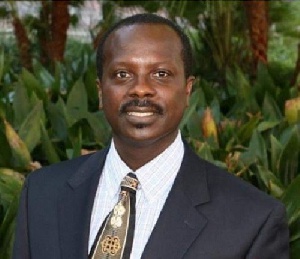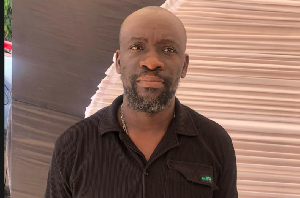Professor Stephen Kwaku Asare a Ghanaian law professor based in Florida in the United States has taken the General Legal Council (GLC) to the Supreme Court over the way and manner the Ghana School Of Law conducts its entrance exams and interview for students who want admission into the school.
The professor who is also suing the Attorney-General(A-G) believes that the rigid ceiling imposed by the GLC on the Bachelor of Law Degree (LLB) Holders who would be allowed an opportunity to train and become lawyers, is grossly unfair and overrides national interest.
He wants the court to declare that the GLC by allowing only 251 students to pursue professional legal education, is capricious and in excess of statutory authority and is contrary to constitutional right and power.
He wants also an order directed at the council to within 7 days state alternative places and modes of instruction for all persons who have met the requirement for admission into the school, the right to pursue legal education and upon completion take the qualifying examination as determined by the council.
The learned professor states that the legal profession should be an open ethically regulated meritocracy serving the legal needs of Ghana and Ghanaians and not a cartel serving the high priced needs or economic interest of a privileged few.
The plaintiff noted that the Legal Professions Act 32 enjoins the GLC to afford opportunities for students to read and to make arrangement for legal education in a manner deem fit through the school of law and said the act states persons who qualify to be admitted to the school and the qualification needed.
He argued that the rigid ceiling process of admission detracts the purpose of selecting qualified students as it will pass a student irrespective of his performance and said such an act is alien to Act 32.
According to him the council has set up an Independent Examination Board (IEB) to conduct entrance examinations and interview adding that the said responsibility according to Act 32 rests with the council adding “the holder of discretionary authority cannot delegate.”
Touching on the marks obtained by students who took part in the entrance exam this year, the professor lamented that the threshold disqualifies more than two-thirds of those who have met the admission standards adding that it is the only school in the world where students do not know the mark they need to obtain in order to pass.
The lecturer contended that too many very good students are being excluded from pursuing the professional component of their legal education even they have solid LLB Degrees.
The plaintiff consequently wants the court to declare that the council’s use of interviewing is highly subjective and an unreliable mode of examining students which is not in accordance with the law.
He also wants a declaration that the entrance examinations are not recognizable at law and cannot be used as a means to deny students the opportunity to pursue their legal education.
General News of Friday, 16 October 2015
Source: Daily Guide













